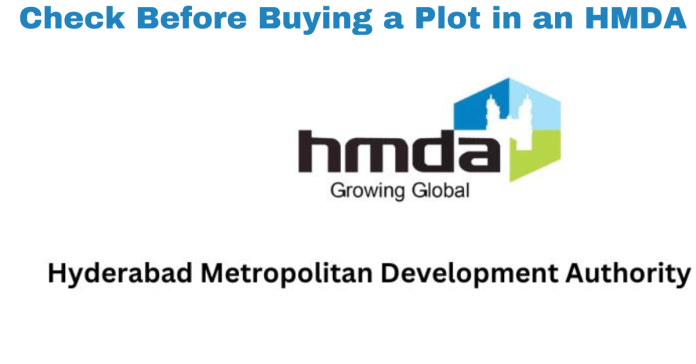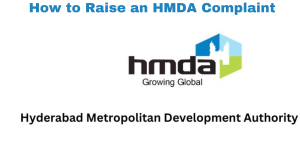Buying a plot of land is a significant investment that requires thorough research and careful consideration. When the plot is part of an HMDA (Hyderabad Metropolitan Development Authority) project, there are specific factors you should evaluate to ensure a safe and beneficial investment. This blog will guide you through the essential checks you should make before purchasing a plot in an HMDA project.
1. HMDA Approval Status
The first and foremost thing to verify is whether the plot is indeed HMDA-approved. An HMDA-approved project means that it has met all regulatory requirements and is legally compliant. You can verify the approval status by visiting the HMDA website or contacting the HMDA office directly.
2. Title Deed and Documentation
Ensure that the title deed of the plot is clear and free of any encumbrances. A clear title deed confirms that the seller has the legal right to sell the property. Additionally, review all other relevant documents, including the sale agreement, power of attorney (if applicable), and previous sale deeds. It’s wise to consult a legal expert to verify the authenticity of these documents.
3. Plot Layout and Dimensions
Check the approved layout plan provided by HMDA. Ensure that the plot dimensions and boundaries are clearly defined and match the actual measurements on the ground. Verify that the layout plan includes essential amenities like roads, drainage, water supply, and green spaces.
4. Zoning Regulations and Land Use
Understand the zoning regulations and permissible land use for the plot. HMDA projects are categorized into various zones, such as residential, commercial, and industrial. Ensure that the plot’s zoning aligns with your intended use. For instance, a residential plot should not be situated in an industrial zone.
Also Read: HMDA Rules and Regulations: Zoning Laws & Approval Processes
5. Location and Connectivity
The location of the plot is a critical factor that influences its value and convenience. Evaluate the plot’s proximity to essential services such as schools, hospitals, markets, and public transport. Good connectivity to major roads and highways is also a significant advantage, enhancing both livability and future resale value.
6. Infrastructure and Amenities
Assess the availability and quality of infrastructure within the HMDA project. This includes roads, drainage systems, water supply, electricity, and sewage facilities. Additionally, check for amenities like parks, playgrounds, and community centers, which can significantly enhance the quality of life.
7. Soil Quality and Topography
Examine the soil quality and topography of the plot. Good soil quality is essential for construction stability and the longevity of any future buildings. The topography should ensure proper drainage and not be prone to flooding or erosion. You may need to consult a civil engineer or a soil expert for this assessment.
8. Legal Disputes and Liabilities
Investigate whether the plot is involved in any legal disputes or liabilities. Legal issues can cause significant delays and additional costs. You can check for ongoing litigation or disputes through local municipal records or by consulting a legal professional.
9. Resale Value and Future Development Plans
Consider the potential resale value of the plot and any future development plans for the area. Areas with planned infrastructure developments, such as new roads, metro lines, or commercial hubs, tend to appreciate over time. Research the master plan of the region to gauge future growth prospects.
10. Builder’s Reputation
Finally, assess the reputation of the builder or developer. A reputable developer with a track record of successful projects is more likely to deliver a quality product and adhere to promises. Look for reviews, testimonials, and any past complaints about the builder.
Conclusion
Buying a plot in an HMDA project involves more than just financial investment; it requires careful consideration of various legal, environmental, and practical factors. By diligently checking the HMDA approval status, title deed, plot layout, zoning regulations, location, infrastructure, soil quality, legal disputes, resale value, and builder’s reputation, you can make an informed and secure investment decision.
Taking these steps ensures that your investment is safe, legally compliant, and poised for future appreciation, making your dream of owning a plot in Hyderabad a rewarding reality.
Latest Blogs
Ans: You can verify HMDA approval by visiting the HMDA official website, checking the approved layout plans, or contacting the HMDA office directly. Ensure that the plot is listed in the approved projects section.
Ans: Verify the title deed, sale agreement, power of attorney (if applicable), previous sale deeds, and the HMDA-approved layout plan. It is advisable to consult a legal expert to ensure all documents are authentic and clear of encumbrances.
Latest Blogs
- Streamlining Construction Permits: HMDA’s Digital Revolution
- Latest News On HMDA Limits Extension: What they are?
- How to Raise an HMDA Complaint: Step-by-Step Guide









